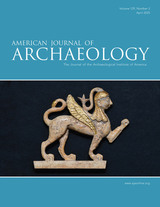7 books about Bill
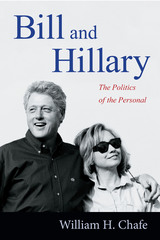
Bill and Hillary
The Politics of the Personal
William H. Chafe
Duke University Press, 2012
In Bill and Hillary, one of our preeminent historians, William H. Chafe, boldly argues that the trajectory of the Clintons' political lives can be understood only through the prism of their personal relationship. From the day they first met at Yale Law School, Bill and Hillary were inseparable, even though their relationship was inherently volatile. The personal dynamic between them would go on to determine their political fates. Hillary was instrumental in Bill's triumphs as Arkansas's governor, and she saved his presidential candidacy in 1992 by standing with him during the Gennifer Flowers sex scandal. He responded by delegating to her powers that no other First Lady had ever exercised. Always tempestuous, their relationship had as many lows as highs, from near divorce to stunning electoral and political successes. Chafe's penetrating insights—into subjects such as health care, Kenneth Starr, welfare reform, and the extent to which the Lewinsky scandal finally freed Hillary to become a politician in her own right—add texture and depth to our understanding of the Clintons' experience together. Bill and Hillary is the definitive account of the Clintons’ relationship and its far-reaching impact on American political life.
[more]

The Bill of Rights
Learned Hand
Harvard University Press

The Bill of Rights in the Modern State
Edited by Geoffrey R. Stone, Richard A. Epstein, and Cass R. Sunstein
University of Chicago Press, 1992
Although the Bill of Rights has existed for two hundred years, the last half century has seen dramatic changes in its meaning and scope. The essays collected in this volume represent the full range of views and interpretations of what these first ten amendments to the U. S. Constitution mean today as guarantors of individual rights.
The contributors to this volume are among the most prominent constitutional scholars in the country. Most of the essays are grouped in pairs, each of which offers conflicting positions on current constitutional controversies, including property rights, freedom of religion, freedom of speech, levels of generality in constitutional interpreation, and unemumerated rights.
The contributors are: Bruce Ackerman, Mary E. Becker, Ronald Dworkin, Frank H. Easterbrook, Richard A. Epstein, Charles Fried, Mary Ann Glendon, Philip B. Kurland, Frank J. Michaelman, Michael W. McConnell, Richard A. Posner, Kathleen M. Sullivan, John Paul Stevens, David A. Strauss, and Cass R. Sunstein.
"A thoughtful and well coordinated set of exchanges between leading modern constitutional theorists about the most significant issues related to the Bill of Rights and the Welfare State. These issues are debated through penetrating essays by opposing theorists who get to the heart of these issues and provide significant answers to their debate opponents' points."—Thomas R. Van Dervort, Southeastern Political Review
The contributors to this volume are among the most prominent constitutional scholars in the country. Most of the essays are grouped in pairs, each of which offers conflicting positions on current constitutional controversies, including property rights, freedom of religion, freedom of speech, levels of generality in constitutional interpreation, and unemumerated rights.
The contributors are: Bruce Ackerman, Mary E. Becker, Ronald Dworkin, Frank H. Easterbrook, Richard A. Epstein, Charles Fried, Mary Ann Glendon, Philip B. Kurland, Frank J. Michaelman, Michael W. McConnell, Richard A. Posner, Kathleen M. Sullivan, John Paul Stevens, David A. Strauss, and Cass R. Sunstein.
"A thoughtful and well coordinated set of exchanges between leading modern constitutional theorists about the most significant issues related to the Bill of Rights and the Welfare State. These issues are debated through penetrating essays by opposing theorists who get to the heart of these issues and provide significant answers to their debate opponents' points."—Thomas R. Van Dervort, Southeastern Political Review
[more]
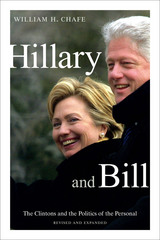
Hillary and Bill
The Clintons and the Politics of the Personal
William H. Chafe
Duke University Press, 2016
In Hillary and Bill, William H. Chafe boldly argues that the trajectory of the Clintons' political lives can be understood only through the prism of their personal relationship. Inseparable from the day they first met, their personal dynamic has determined their political fates. Hillary was instrumental in Bill's triumphs as Arkansas's governor, and she saved his presidential candidacy in 1992 during the Gennifer Flowers sex scandal. He responded by delegating to her powers that no other First Lady had ever exercised. Chafe's penetrating insights—into subjects such as health care, Kenneth Starr, welfare reform, and the Lewinsky scandal—add texture and depth to our understanding of the Clintons' experience together. Hillary and Bill is the definitive account of the Clintons’ relationship and its far-reaching impact on American political life.
In this new edition, Chafe explores how Hillary adopted a new persona as a U.S. senator, returning to the consensus-oriented reformer she had been before she met Bill. Listening to her constituents and building bridges to Republicans in Congress, she left behind the us-against-them political personality of her White House years. She kept this persona as secretary of state, establishing personal ties with foreign leaders and reaching out to average citizens in the countries she visited. Still, she retained her obsession with her personal privacy and permitted the Clinton Foundation to create potential conflicts of interest with her government responsibilities. The key question, as she approached the 2016 presidential race, was which Hillary would be the presidential candidate—the person who reaches out to others and seeks collaborators or the Hillary who demonizes the opposition and fiercely protects her privacy and self-image.
[more]
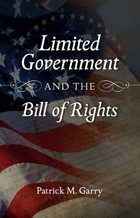
Limited Government and the Bill of Rights
Patrick M. Garry
University of Missouri Press, 2012
Eric Hoffer Award Grand Prize Short List, 2015
What was the intended purpose and function of the Bill of Rights? Is the modern understanding of the Bill of Rights the same as that which prevailed when the document was ratified? In Limited Government and the Bill of Rights, Patrick Garry addresses these questions. Under the popular modern view, the Bill of Rights focuses primarily on protecting individual autonomy interests, making it all about the individual. But in Garry’s novel approach, one that tries to address the criticisms of judicial activism that have resulted from the Supreme Court’s contemporary individual rights jurisprudence, the Bill of Rights is all about government—about limiting the power of government. In this respect, the Bill of Rights is consistent with the overall scheme of the original Constitution, insofar as it sought to define and limit the power of the newly created federal government.
What was the intended purpose and function of the Bill of Rights? Is the modern understanding of the Bill of Rights the same as that which prevailed when the document was ratified? In Limited Government and the Bill of Rights, Patrick Garry addresses these questions. Under the popular modern view, the Bill of Rights focuses primarily on protecting individual autonomy interests, making it all about the individual. But in Garry’s novel approach, one that tries to address the criticisms of judicial activism that have resulted from the Supreme Court’s contemporary individual rights jurisprudence, the Bill of Rights is all about government—about limiting the power of government. In this respect, the Bill of Rights is consistent with the overall scheme of the original Constitution, insofar as it sought to define and limit the power of the newly created federal government.
Garry recognizes the desire of the constitutional framers to protect individual liberties and natural rights, indeed, a recognition of such rights had formed the basis of the American campaign for independence from Britain. However, because the constitutional framers did not have a clear idea of how to define natural rights, much less incorporate them into a written constitution for enforcement, they framed the Bill of Rights as limited government provisions rather than as individual autonomy provisions. To the framers, limited government was the constitutional path to the maintenance of liberty. Moreover, crafting the Bill of Rights as limited government provisions would not give the judiciary the kind of wide-ranging power needed to define and enforce individual autonomy.
With respect to the application of this limited government model, Garry focuses specifically on the First Amendment and examines how the courts in many respects have already used a limited government model in their First Amendment decision-making. As he discusses, this approach to the First Amendment may allow for a more objective and restrained judicial role than is often applied under contemporary First Amendment jurisprudence.
Limited Government and the Bill of Rights will appeal to anyone interested in the historical background of the Bill of Rights and how its provisions should be applied to contemporary cases, particularly First Amendment cases. It presents an innovativetheory about the constitutional connection between the principle of limited government and the provisions in the Bill of Rights.
[more]
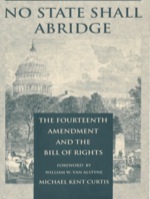
No State Shall Abridge
The Fourteenth Amendment and the Bill of Rights
Michael Kent Curtis
Duke University Press, 1990
“The book is carefully organized and well written, and it deals with a question that is still of great importance—what is the relationship of the Bill of Rights to the states.”—Journal of American History
“Curtis effectively settles a serious legal debate: whether the framers of the 14th Amendment intended to incorporate the Bill of Rights guarantees and thereby inhibit state action. Taking on a formidable array of constitutional scholars, . . . he rebuts their argument with vigor and effectiveness, conclusively demonstrating the legitimacy of the incorporation thesis. . . . A bold, forcefully argued, important study.”—Library Journal
[more]

Veeck As In Wreck
The Autobiography of Bill Veeck
Bill Veeck with Ed Linn
University of Chicago Press, 2001
Bill Veeck was an inspired team builder, a consummate showman, and one of the greatest baseball men ever involved in the game. His classic autobiography, written with the talented sportswriter Ed Linn, is an uproarious book packed with information about the history of baseball and tales of players and owners, including some of the most entertaining stories in all of sports literature.
[more]
READERS
Browse our collection.
PUBLISHERS
See BiblioVault's publisher services.
STUDENT SERVICES
Files for college accessibility offices.
UChicago Accessibility Resources
home | accessibility | search | about | contact us
BiblioVault ® 2001 - 2025
The University of Chicago Press






